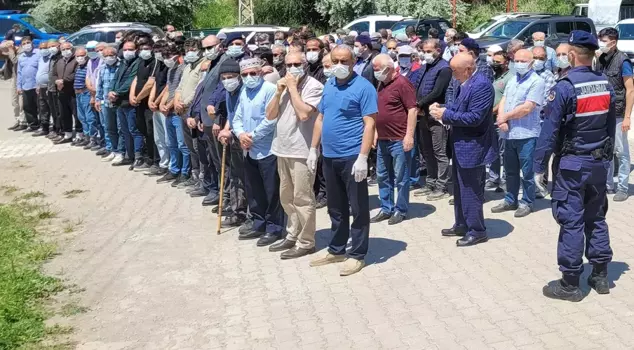
20.05.2025 15:11
A 1.5-year-old boy named Metehan Tütüncü, who was being treated for suspected Crimean-Congo Hemorrhagic Fever (CCHF) in Tokat, has passed away. While Metehan Tütüncü was being buried in Sivas, it was notable that attendees wore masks. Additionally, the Sivas Governorship warned citizens about ticks that transmit the CCHF disease.
```html
Two days ago, a tick attached itself to 1.5-year-old Metehan Tütüncü, the baby of Süleyman and Nilüfer Tütüncü, in Kalebaşı village of Koyulhisar district in Sivas. Metehan was taken to Reşadiye State Hospital by his family and was later transferred to Tokat State Hospital.
The baby, who was being treated for suspected CCHF (Crimean-Congo Hemorrhagic Fever) at the hospital, could not be saved despite all interventions last night.
THE FUNERAL WAS BURIED IN SIVAS
The baby's funeral was taken by his family to Kalebaşı village in Koyulhisar district of Sivas. The funeral was buried under the supervision of gendarmerie and public health teams. It was observed that attendees wore masks.
Koyulhisar District Governor Ferhat Salih Ceylan also attended the funeral and expressed his condolences to the family.
THE GOVERNOR'S OFFICE WARNED
Meanwhile, in a written statement from the Sivas Governor's Office, it was stated that simple but effective measures to be taken against CCHF, which poses a life risk, can protect both individual and public health.
The statement included, "It is of great importance for our citizens to be cautious against CCHF cases, which periodically increase due to seasonal and environmental factors in Sivas and surrounding provinces."
In the statement, information was also provided about the precautions citizens should take against ticks that transmit the CCHF virus:
"When going to risky areas such as fields, vineyards, gardens, forests, and picnic areas, light-colored clothing that covers the body should be preferred. Pant legs should be tucked into socks, and upon returning, the body, especially areas like behind the ears, armpits, groin, and behind the knees, should be carefully checked. Ticks that attach to the body should never be handled with bare hands, and attempts should not be made to remove them with substances like cologne or cigarettes. Citizens who have been exposed to ticks should seek medical attention as soon as possible. Ticks on animals should not be touched, and contact with the blood and body fluids of animals should be avoided. If symptoms such as weakness, fever, loss of appetite, headache, nausea, vomiting, and diarrhea occur within 10 days after tick contact, one should go to a health unit without delay."
```